
Laurence Kerr Olivier, Baron Olivier, was an English actor and director who, along with his contemporaries Ralph Richardson and John Gielgud, was one of a trio of male actors who dominated the British stage of the mid-20th century. He also worked in films throughout his career, playing more than fifty cinema roles. Late in his career he had considerable success in television roles.
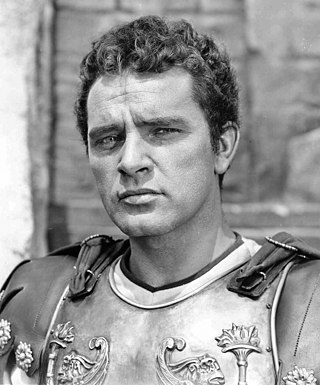
Richard Burton was a Welsh actor.
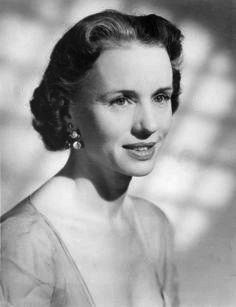
Jessie Alice Tandy was an English actress. Tandy appeared in over 100 stage productions and had more than 60 roles in film and TV, receiving an Academy Award, four Tony Awards, a BAFTA Award, a Golden Globe Award, and a Primetime Emmy Award. She won a Tony Award for Best Actress in a Play for playing Blanche DuBois in the original Broadway production of A Streetcar Named Desire in 1948, also winning for The Gin Game and Foxfire. Her films included Alfred Hitchcock's The Birds, Cocoon, Fried Green Tomatoes, and Nobody's Fool. At 80, she became the oldest actress to receive the Academy Award for Best Actress for her role in Driving Miss Daisy.

Sir Ralph David Richardson was an English actor who, with John Gielgud and Laurence Olivier, was one of the trinity of male actors who dominated the British stage for much of the 20th century. He worked in films throughout most of his career, and played more than sixty cinema roles. From an artistic but not theatrical background, Richardson had no thought of a stage career until a production of Hamlet in Brighton inspired him to become an actor. He learned his craft in the 1920s with a touring company and later the Birmingham Repertory Theatre. In 1931 he joined the Old Vic, playing mostly Shakespearean roles. He led the company the following season, succeeding Gielgud, who had taught him much about stage technique. After he left the company, a series of leading roles took him to stardom in the West End and on Broadway.

Sir Arthur John Gielgud, was an English actor and theatre director whose career spanned eight decades. With Ralph Richardson and Laurence Olivier, he was one of the trinity of actors who dominated the British stage for much of the 20th century. A member of the Terry family theatrical dynasty, he gained his first paid acting work as a junior member of his cousin Phyllis Neilson-Terry's company in 1922. After studying at the Royal Academy of Dramatic Art (RADA), he worked in repertory theatre and in the West End before establishing himself at the Old Vic as an exponent of Shakespeare in 1929–31.

Hume Blake Cronyn Jr. was a Canadian-American actor and writer.
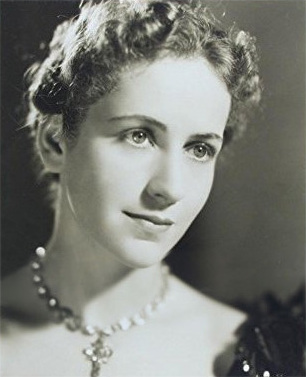
Dame Edith Margaret Emily Ashcroft, known professionally as Peggy Ashcroft, was an English actress whose career spanned more than 60 years.
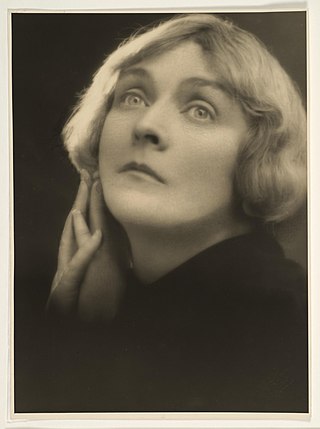
Dame Agnes Sybil Thorndike, Lady Casson, was an English actress whose stage career lasted from 1904 to 1969.

Vincent Gardenia was an Italian-American stage, film, and television actor. He was nominated twice for the Academy Award for Best Supporting Actor, first for Bang the Drum Slowly (1973) and again for Moonstruck (1987). He also portrayed Det. Frank Ochoa in Death Wish (1974) and its 1982 sequel, Death Wish II, and played Mr. Mushnik in the musical film adaptation Little Shop of Horrors (1986).

George Cooper Grizzard Jr. was an American stage, television, and film actor. He was the recipient of a Grammy Award, a Primetime Emmy Award and a Tony Award, among other accolades.

Basil Herbert Dean CBE was an English actor, writer, producer and director in the theatre and in cinema. He founded the Liverpool Repertory Company in 1911 and in the First World War, after organising unofficial entertainments for his comrades in the army, he was appointed do so officially. After the war he produced and directed mostly in the West End. He staged premieres of plays by writers including J. M. Barrie, Noël Coward, John Galsworthy, Harley Granville-Barker and Somerset Maugham. He produced nearly 40 films, and directed 16, mainly in the 1930s, with stars including Gracie Fields.
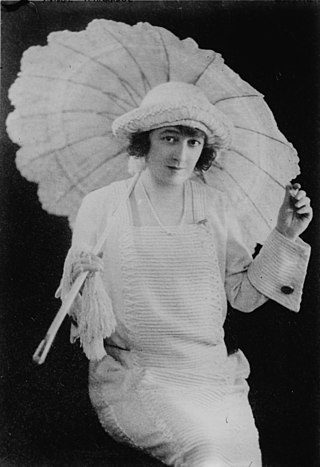
Madge Titheradge was an Australian-born actress who became a leading actress in the West End of London and on Broadway.

Hilda Crane is a 1956 American drama film made by 20th Century Fox. It was directed by Philip Dunne and produced by Herbert B. Swope Jr. from a screenplay adapted by Dunne from the play by Samson Raphaelson. The music score was by David Raksin and the cinematography by Joseph MacDonald. The film was made in Technicolor and Cinemascope.
The Gin Game is a two-person, two-act play by Donald L. Coburn that premiered at American Theater Arts in Hollywood in September 1976, directed by Kip Niven. It was Coburn's first play, and the theater's first production. The play won the 1978 Pulitzer Prize for Drama.

Edward Knoblock was a playwright and novelist, originally American and later a naturalised British citizen. He wrote numerous plays, often at the rate of two or three a year, of which the most successful were Kismet (1911) and Milestones. Many of his plays were collaborations, with, among others, Vicki Baum, Beverley Nichols, J. B. Priestley and Vita Sackville-West.
Richard Burton's Hamlet is a common name for both the Broadway production of William Shakespeare's tragedy that played from April 9 to August 8, 1964 at the Lunt-Fontanne Theatre, and for the filmed record of it that has been released theatrically and on home video.
Robert Whitehead was a Canadian theatre producer. His first production was Medea, starring Judith Anderson and John Gielgud, and he won the Outer Critics Circle Award five times. He was nominated for 19 Tony and Drama Desk Awards, winning 4 Tony Awards and 5 Drama Desk Awards.

Archer King was an American theatrical agent, producer and actor.

The Phoenix Theatre was a pioneering off-Broadway theatre in New York City, extant from 1953 to 1982. The Phoenix was founded by impresario Norris Houghton and T. Edward Hambleton. The project was a pioneering effort in the establishment of off-Broadway theatre. Houghton and Hambleton wanted a theatre away from Times Square, that would host a permanent company, abjure the star system, produce four or five plays a season for limited engagements, and with ticket prices much lower than on Broadway.

The Constant Nymph is a play based on the 1924 novel of the same name by Margaret Kennedy. The stage version, adapted by Kennedy and the director Basil Dean, was first performed in London in 1926, starring Noël Coward, Edna Best and Cathleen Nesbitt. It portrays the love of two women for a young composer, and the conflicts that arise. The tragic ending has the younger of the two – a teenager – die of heart failure.
















